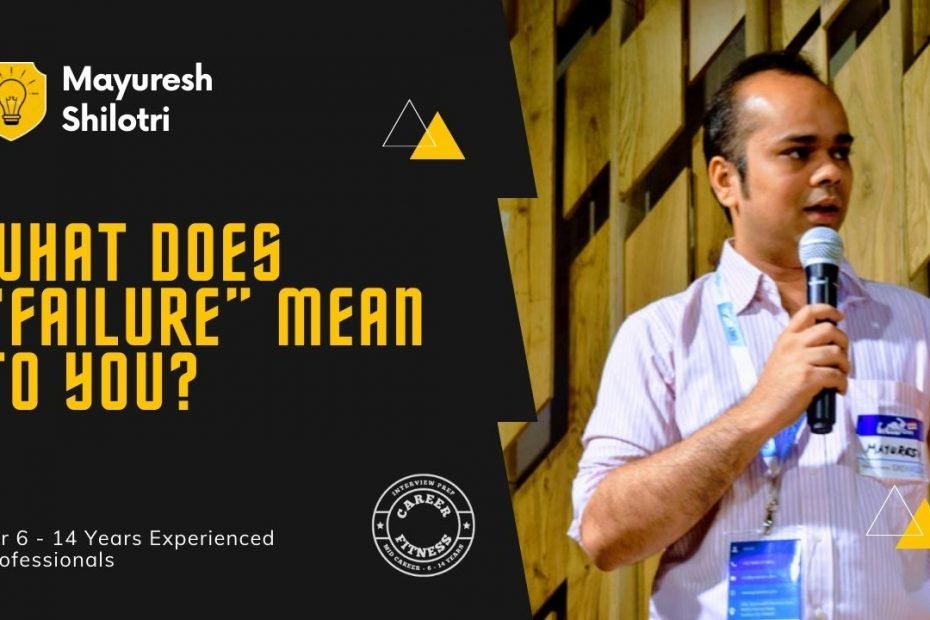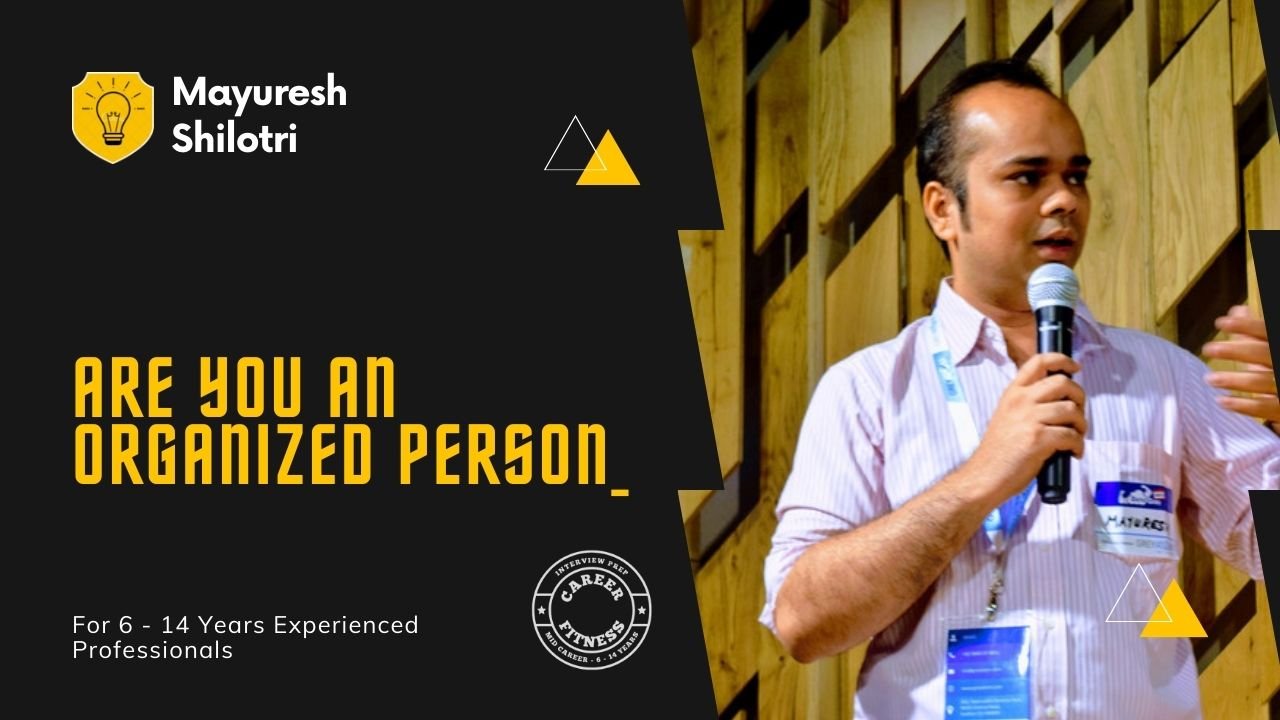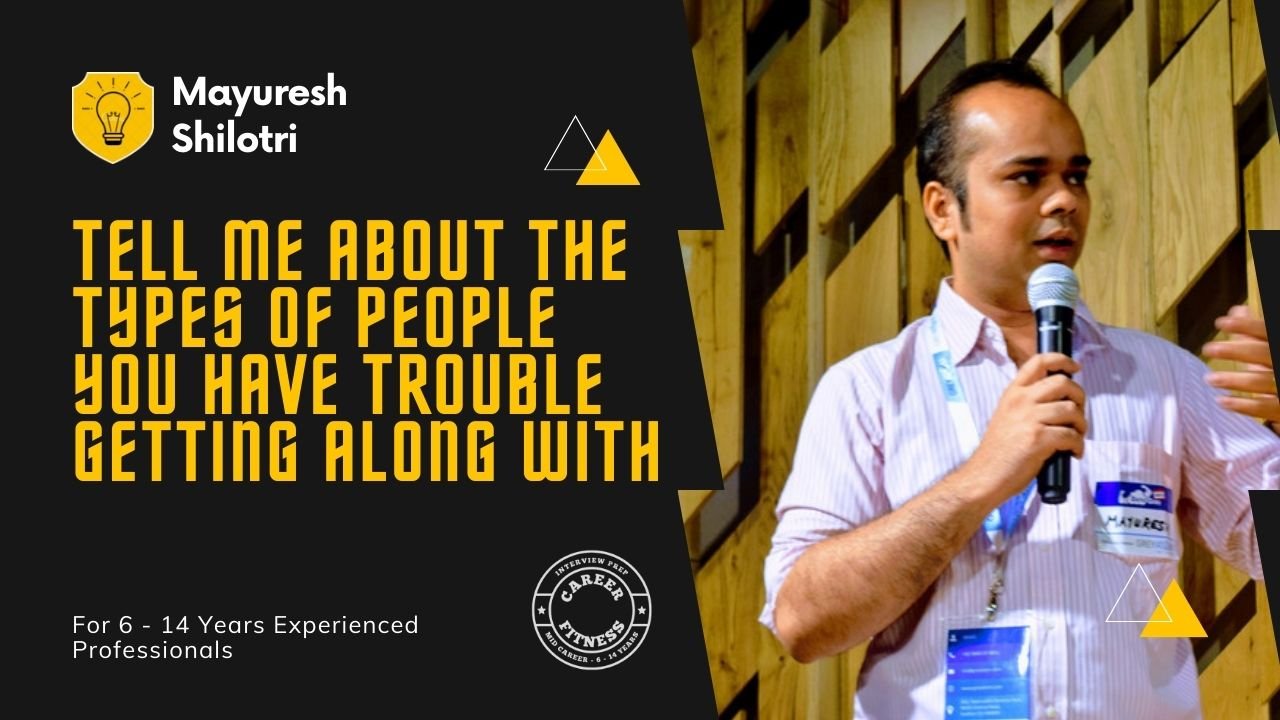Make sure this is an opportunity to have an authentic conversation. Make sure this is an opportunity to have an authentic conversation.
When you are attempting when you’re trying to achieve something, when you’re out to get something and in the process, despite your best effort, despite your contingency planning, despite your best and the highest quality of the plan and highest quality of execution, you do not get the intended outcome. That’s when you call it a failure.
- Words:543 (Skim friendly)
- Type: Post
- Video:1
- Slides: 0
- Topic: Career Guidance
- TIME: 4 Minute
This is one of the trickiest questions which comes across, and people are typically not very well prepared. This, along with the question, which is typically like can you name your top three weaknesses is one of those questions with stumps. A lot of it is absolutely imperative that you are prepared to respond to this question.
So let’s first understand why this is asked. As the interviewer, as a founder of the company, and as a hiring manager, what he or she is looking at is whether you are able to open up yourself in a graceful way, in a social way, or in a meaningful way. Tell people what those failures were and be composed throughout. It is again a question which helps them understand your maturity. It helps them understand your ownership, whether you’re able to take responsibility, whether you’re able to own your failures, fail gracefully and rebound. That’s the key thing that people are looking out for in this particular question. It’s an excellent opportunity for you to make the impression that you’ve always wanted to make over here.
So it’s very important to understand what is a failure and what is not a failure. So, what exactly is not a failure? See, you’re trying to achieve a certain thing. And typically, that requires you to exhaust a few options. Try out a few experiments, A, B, C, and C, something that works. So if B works and A & C do not work, then it doesn’t mean that A and C are failures. I think the experiment is designed to evaluate the options A, B and C and B actually worked for the experiment is a success, and it’s like a sweet deal. So the iterations that typically go on when you try to establish that use case to success typically is not counted as failures.
There’s again a very thin line between what is a failure and what is not a failure, but you do not want to, quote, a trivial example, an example where you essentially know that you ultimately succeeded. But you know, those were just the stepping stones towards that success. So just make sure that you don’t make this very frivolous. You bring out a genuine shortcoming. You bring out a genuine failure. That happens. So that’s the key thing.
So what is failure? So please listen to this part very, very clearly. When you are attempting when you’re trying to achieve something, when you’re out to get something and in the process, despite your best effort, despite your contingency planning, despite your best and the highest quality of the plan and highest quality of execution, you do not get the intended outcome. That’s when you call it a failure. It’s very important to make sure that the quality of planning, the quality of execution, and the quality of retries are all very, very top-notch, and still, you did not succeed. And it does not mean that you are incompetent, please. Absolutely not. What it essentially means is that you are bringing out your resilience. You are bringing out that you understand what the factors which can be controlled, what are the factors that you cannot be controlled are, you’re putting your 150%, And still, things didn’t go as planned after having tried enough number of times after having retried a few times. So that’s the key thing. You have to make sure the quality of effort, the quality of planning and resilience come out very, very, very strongly. Things don’t work out, and it’s perfectly possible and perfectly acceptable. People understand anyone who’s run a business. Anyone who’s running a business will completely be able to understand. Bring out your resilience. Bring out your risk mitigation strategies.
Ability to foresee things, ability to chart out alternate pathways. And just make sure that you’re able to communicate all of it and that you know what, that’s okay. And that is perfectly okay. But just make sure that you’re communicating something which is very, very legitimate, something which is not frivolous, something that is real, and I’m sure you’ll be able to just dig deep and find something very, very valuable to communicate.
Make sure this is an opportunity to have an authentic conversation.
Perfect!
That brings us to the last point where we communicate that you understand that there are ‘controllables’ and there are ‘uncontrollables’, there are things that you can control in life, and there are things that you cannot control in life. You understand, and you have the emotional maturity to a social, graceful way of dealing with it and being able to articulate and communicate it. So just make sure that you’re bringing up these points.
Awesome. Hope this helps you tailor your response to what failure means to you. And you want to bring out a specific example of what failure means to me. But how do you go about answering this question? In the real-world scenario?
That’s just to summarise, make sure that you have an authentic conversation. Thank you so much.
Career Fitness – Job Interview Preparation Series for Mid Career Professionals (Technology, Product, Corporate, Startups)
For 6 – 14 years experience bracket folks. People who are looking to meaningfully pivot the career, leapfrog into a new domain, change focus areas. Advice on how to navigate your career for stronger longer-term RoI.




